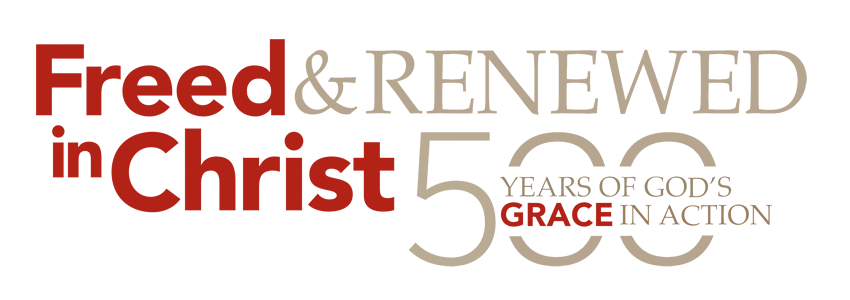Quick Links
About
WHAT HAPPENED IN THE REFORMATION?
Martin Luther posted his “Ninety-Five Theses” in Wittenberg on October 31, 1517 and the resulting debate about Christian teaching and practice led to changes that have shaped the course of Western Christianity for almost 500 years. At the heart of these wide-reaching changes was a deep conviction that God’s mercy or grace in Jesus is given freely to all. When Luther and others learned to trust God’s mercy with “a living, daring confidence,” they discovered in that faith the freedom to give themselves generously, lovingly in all of life’s undertakings with everyone they met.
The changes began with a critical look at confession and forgiveness, preaching and the sacraments — what Luther called the “means of grace.” The sale of indulgences, the practice of penance, the content of preaching, the administration of Baptism and the Lord’s Supper — all the restrictions that impeded the message of God’s mercy from being heard and received fully by all came under close scrutiny. Repeatedly, Luther made changes and took initiatives to give full and free expression to the gospel, the message of God’s liberating mercy in Jesus Christ. He translated the Scriptures into German so that ordinary believers could hear the Word of God in their everyday language. He composed many hymns including “A Mighty Fortress” (based on Psalm 46) that put the Word of God to music, the language of the heart. He preached for the people in Wittenberg in simple, everyday terms, and he used those sermons as the basis for teaching resources that parents and local pastors could use — his Small and Large Catechisms.
WHY IS THE REFORMATION STILL RELEVANT?
The Lutheran Reformation offers to Christian communities everywhere a liberating way of listening to and speaking the Scriptures. The Reformation teaching that Christ’s life flows through faith into a life of service to the neighbor is especially liberating in our culture today.
The evangelical Lutheran Reformation offers the promise of God’s love that makes possible a life of “living, daring confidence in God’s grace.”
The Reformation teaching that faith is the work of God’s Holy Spirit is especially liberating in a culture that assumes a faith relationship with God is an act of human “free will.”
Many, both within Christian communities and beyond, are held captive by ideologies that limit the full scope of God’s mercy in Christ to demographic groups defined sociologically by certain beliefs, behaviors or experiences. The Reformation teaching that Christ’s life flows through faith into a life of service to the neighbor is especially liberating in a culture that makes religious life into a demonstration of one’s own worthiness and privilege to the disadvantage of others.
HOW IS THE ELCA OBSERVING THE 500TH ANNIVERSARY OF THE REFORMATION?
The ELCA is one church body organized in three expressions — congregations, synods and the churchwide organization. Each expression has its particular functions but all three share a common mission of doing God’s work in the world and proclaiming the good news of Jesus Christ. Congregations, members, synods and other institutions of the ELCA will be observing the 500th anniversary of the Lutheran Reformation by a variety of events and activities in the coming years. Many of the local activities will reflect the magnitude of work being done on a national and international scale.
Some areas of engagement will surround acknowledging what Martin Luther did to spark the Reformation, revisiting the roots of our Lutheran beliefs and what those roots mean today for us and our engagement with others.
In all of these activities, the ELCA seeks to find in this historic milestone an occasion to give a confident and joyful witness of the life and freedom in Jesus Christ that is for all.
The above was originally published on http://www.elca500.org/. Visit http://www.elca500.org/the-observance/ for more information.
Articles
Pope Francis, Catholics and Lutherans Will Recall Reformation
New York Times, January 25, 2016


